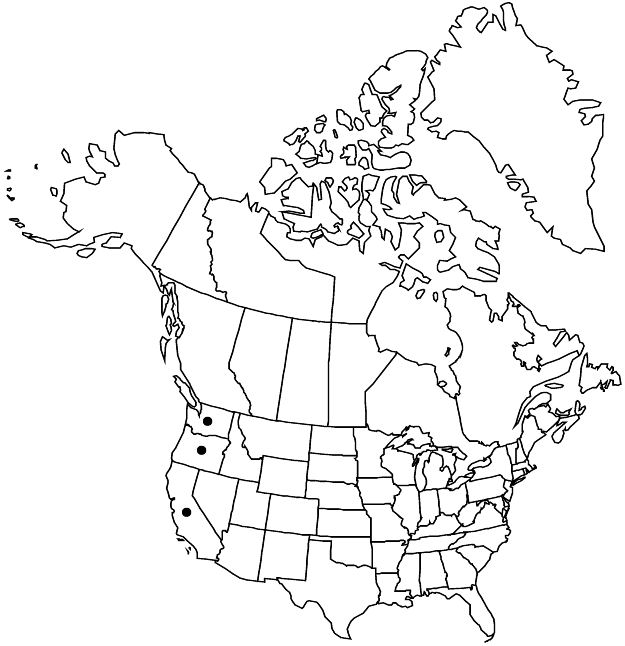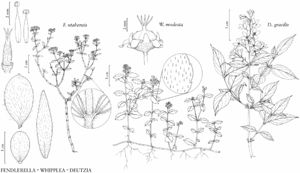Difference between revisions of "Whipplea modesta"
Pacif. Railr. Rep. 4(5): 90, plate 7. 1857.
FNA>Volume Importer |
FNA>Volume Importer |
||
| Line 53: | Line 53: | ||
|publication year=1857 | |publication year=1857 | ||
|special status=Illustrated;Endemic | |special status=Illustrated;Endemic | ||
| − | |source xml=https://jpend@bitbucket.org/aafc-mbb/fna-data-curation.git/src/ | + | |source xml=https://jpend@bitbucket.org/aafc-mbb/fna-data-curation.git/src/f50eec43f223ca0e34566be0b046453a0960e173/coarse_grained_fna_xml/V12/V12_945.xml |
|genus=Whipplea | |genus=Whipplea | ||
|species=Whipplea modesta | |species=Whipplea modesta | ||
Revision as of 19:57, 16 December 2019
Stems to 10 dm; adventitious roots at proximal nodes. Flowering branches weak, (0.4–)0.6–1.5 dm, appressed-pubescent. Leaves: petiole 0–3 mm, pilose; blade 10–40 × 10–30 mm, base rounded or tapered, apex obtuse, abaxial surface strigose, adaxial with white, pustule-based trichomes. Inflorescences congested to open; peduncle 20–50 mm, appressed-pubescent. Pedicels 0.5–2.5 mm, appressed-pubescent. Flowers odorless; hypanthium 1.4–2 × 2.3–2.6 mm; sepals 1.5–2 × 0.2–0.5 mm; petals 2.5–4 × 1–1.5 mm; filaments 1.2 × 0.5 mm; anthers 0.4–0.6 mm; styles 1–1.2 mm. Capsules 1.5–2 × 2–2.5 mm. Seeds 1–1.5 mm.
Phenology: Flowering Mar–Jun.
Habitat: Dry, rocky sites, open to sparsely forested areas.
Elevation: (30–)400–1300(–1700) m.
Distribution

Calif., Oreg., Wash.
Discussion
Whipplea modesta grows on the west side of the Cascade and Coast ranges. In Washington, it is known only from Clallam County.
Selected References
None.
